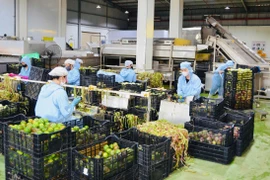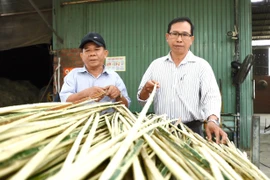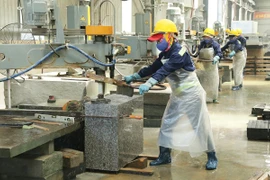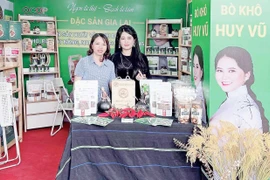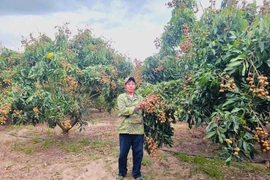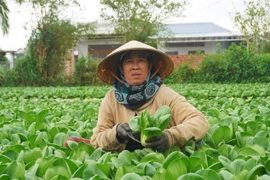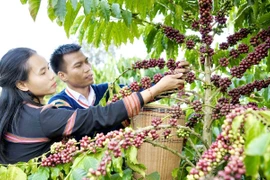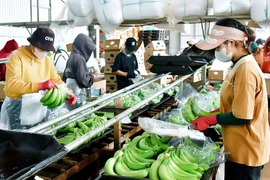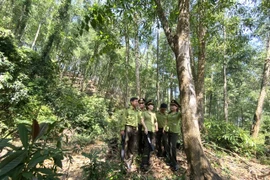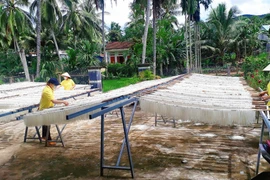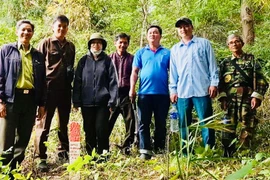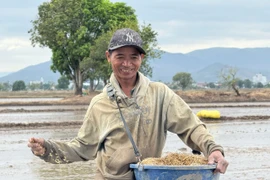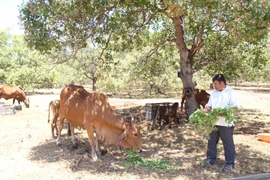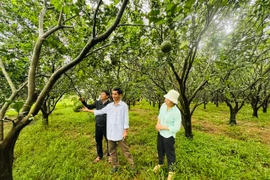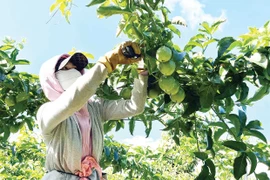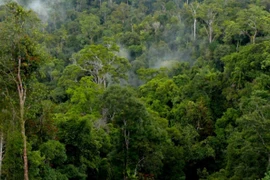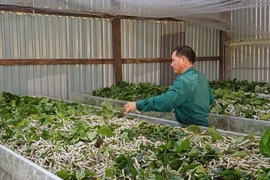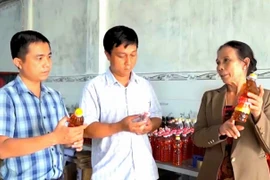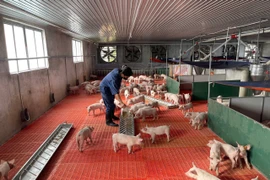After five years of trials, Minh Khanh Gia Lai Co., Ltd. has perfected the cultivation process from spawn and mother culture production to processing, gaining high recognition in the market.
The company’s director, Nguyễn Công Hiệu, recalled the early experiments under acacia forests at the foot of Cờ Mountain in Ia Phí commune, where the climate and humidity proved ideal for reishi growth.
“The soil, climate, and humidity here are favorable, and the mushrooms develop well. After just three months, they are ready for harvest, meeting standards in size, weight, and medicinal properties,” Hiệu said.
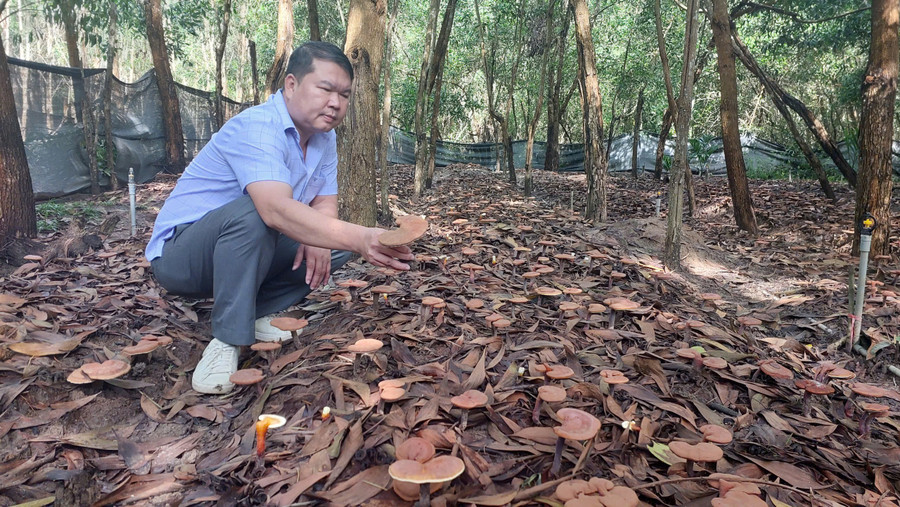
High yields and strong market demand
With an initial investment of 40 million VND (US$1,570) for 1,000 spawns, the company harvests 120-150 kilograms of mushrooms in three months, selling for about 1 million VND per kilogram of dried reishi. Each spawn can yield three to four harvests a year.
Minh Khanh Gia Lai currently cultivates on around 40 hectares of acacia forest, generating estimated annual profits of 3.5-4 billion VND.
Building on its success, the company has expanded operations to nine sites across Gia Lai, Quảng Trị, Quảng Ngãi and Huế, and now partners with local ethnic minority households.
Expanding processing and partnerships
The company has also developed value-added products including reishi honey, extracts, starch, and sliced mushrooms, while supplying raw materials to pharmaceutical firms.
Stable market demand and technological know-how have allowed Minh Khanh Gia Lai to trial new sites in Đak Rong and Kbang communes.
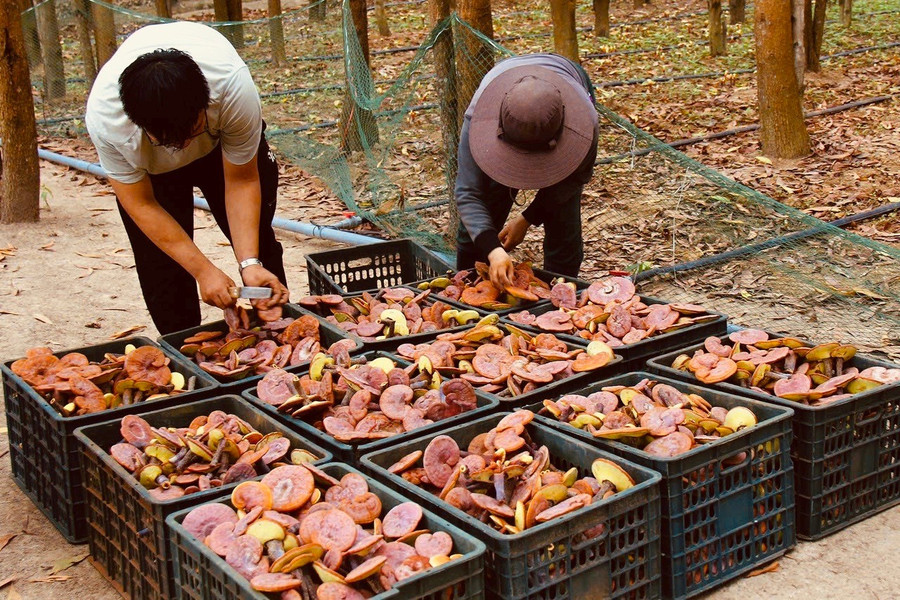
Other forestry companies, including Đak Rong Forestry One Member Co., Ltd. and Lơ Ku Forestry One Member Co., Ltd., have also joined the initiative, trialing cultivation on their forest land.
Plans include expanding mushroom production across 1,600 hectares of forest and testing under macadamia canopies.
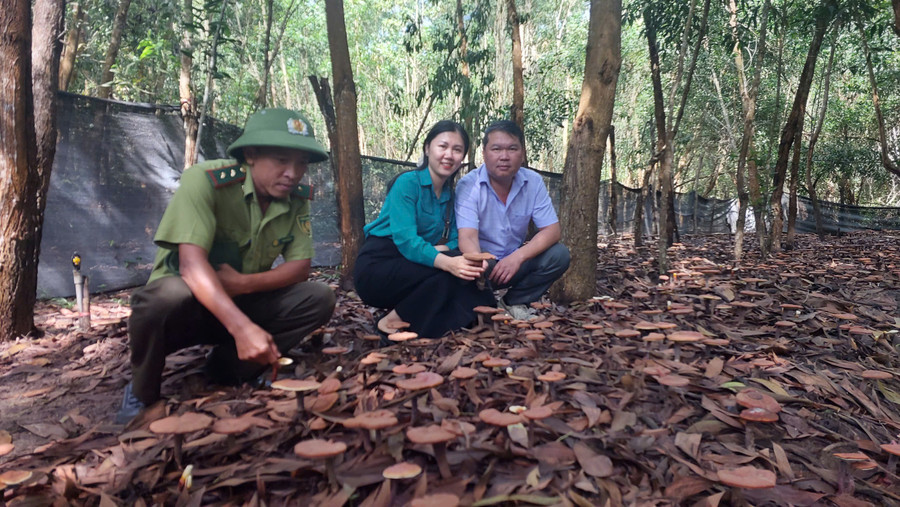
A pathway to sustainable forestry
According to the Provincial Forest Protection Department, Gia Lai’s western region has nearly 650,700 hectares of forest, with conditions well-suited to medicinal plants such as reishi.
The department says cultivation under the canopy not only provides jobs and higher incomes but also supports green and sustainable forestry.
“Several enterprises and cooperatives have already shown the model’s economic efficiency,” said Trương Thanh Hà, deputy head of the department. “We will continue to work with localities and businesses to expand cultivation, creating both livelihoods and long-term forestry benefits.”















